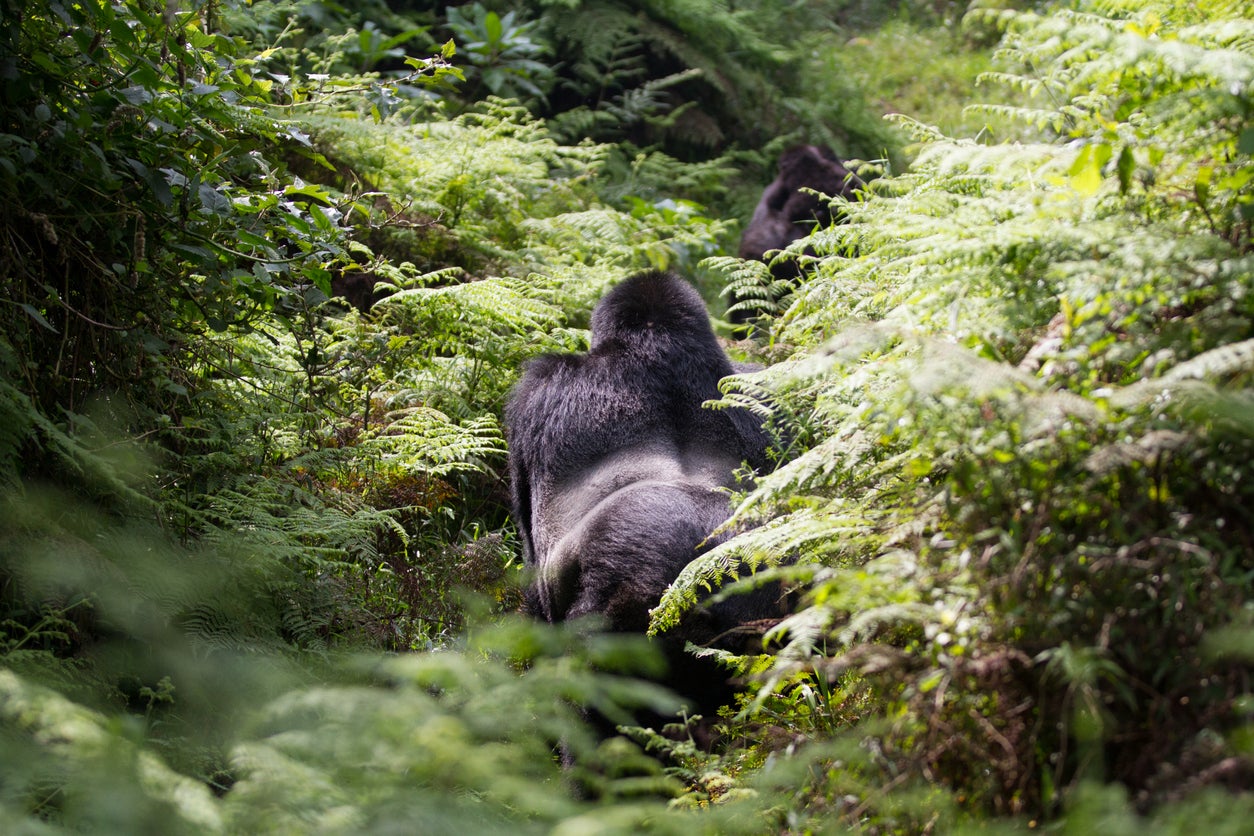How tourism in Uganda is bouncing back after Covid
The Uganda Wildlife Authority’s Stephen Sanyi Masaba on the measures taken during the pandemic to preserve wildlife and protect heritage

Your support helps us to tell the story
From reproductive rights to climate change to Big Tech, The Independent is on the ground when the story is developing. Whether it's investigating the financials of Elon Musk's pro-Trump PAC or producing our latest documentary, 'The A Word', which shines a light on the American women fighting for reproductive rights, we know how important it is to parse out the facts from the messaging.
At such a critical moment in US history, we need reporters on the ground. Your donation allows us to keep sending journalists to speak to both sides of the story.
The Independent is trusted by Americans across the entire political spectrum. And unlike many other quality news outlets, we choose not to lock Americans out of our reporting and analysis with paywalls. We believe quality journalism should be available to everyone, paid for by those who can afford it.
Your support makes all the difference.There are only around a thousand mountain gorillas left in the world, with more than half of those living in Uganda, thanks to decades of intensive conservation work.
When Covid abruptly halted the global tourism industry, the Uganda Wildlife Authority [UWA] turned its attention to protecting its ape population - and other species in the country’s protected areas - despite the crippling loss of revenue.
“We went into survival mode and adopted contingency budget which saw us prioritise wildlife protection and staff retention,” says Stephen Sanyi Masaba, Director Tourism and Business Development at UWA, Management made the decision not to lay off - or even reduce the salaries - of any of its 2,300 staff.
“The pandemic was a wake up call,” says Masaba. “It made us think, what would happen if our gorilla or chimpanzee populations were wiped out? It would be disastrous. We knew we had to retain the expert staff who know how to care for them.
“Fortunately before Covid we already operated the most sensitive primate tourism, with strict limits on numbers who could visit a gorilla or chimpanzee family. We maintained a distance of seven meters away from the gorillas, which was increased to 10 meters during COVID-19, but it encouraged us to do even more such as sanitizing and washing hands and wearing masks. It made us even more committed to better protecting our natural world by being extra careful and more conscious.”
When Covid first struck there were fears in the conservation world that the virus could spread to Uganda’s gorillas, putting them at risk of severe illness and death.
Thanks to the vigilance of the UWA’s expert gorilla team and the guidance of Ministry of Health ,that was avoided. We have seen a record of 19 new gorilla births in the past two years. “Thanks to a sustained conservation efforts of our staff and management and the support of conservation partners who came in to support during difficult times.
The parks are quiet and safe and now ready to welcome you again following the opening up of the economy and wildwide travel,” says Masaba.
That’s not to say there haven’t been threats to animal safety since the pandemic. Masaba tells the Independent there has been some increase in illegal wildlife and poaching in some of the savanna parks.
“When the country shut down there were not sufficient government relief packages to ensure communities’ survival, and some people living near parks began poaching for basic needs and food,” he says. But due to increased vigilance of of our law enforcement team out of the 5,779 wildlife crime cases reported since the pandemic began, 4,867 were prosecuted and concluded.
Masaba adds “During this time we have also worked hard to ensure that the offenders face justice. Out of the 230 wildlife crime court cases concluded so far, we have managed to secure 207 convictions, representing a 90% conviction rate.”
Cracking down even harder on wildlife criminals and the exceptional gorilla birth rate are positives that have come from the difficulties past two years. “We have learnt a lot from this tough time,” says Masaba. “We know how to better leverage technology - for example we launched the My Gorilla Family app recently, which enables one to trace and follow up developments of their gorilla families online. We have also improved our booking and payments system to enable payments online and directly into our bank accounts . We have also streamlined our internal processes to minimise costs.
“We know we won’t have all the resources we have forever unless we protect these important wildlife resources today so that the public can benefit from them in the future. Conservation work goes beyond one government agency. We need and should involve all other government departments, the communities and the public so that future generations can be able to enjoy this natural heritage.”
Today, Uganda’s message to the world is that Uganda is open. Masaba says “besides the memorable mountain gorilla tracking experience, you will come face to face with the beautiful nature and landscapes in the country that has ice and snow on Mountain Rwenzori, fresh water lakes, the big five in the national parks and the warmth of the people, culture and organic food.”
“We are witnessing increasing number of visitors following the opening of tourism. The regional and domestic visitors have equally increased and keen to explore their country.
“In the next two years Uganda tourism will be back to pre-Covid levels,” says Masaba. “I think the pandemic taught us life is so abundant, yet you can lose it by not taking simple steps to preserve it.”
Join our commenting forum
Join thought-provoking conversations, follow other Independent readers and see their replies
Comments